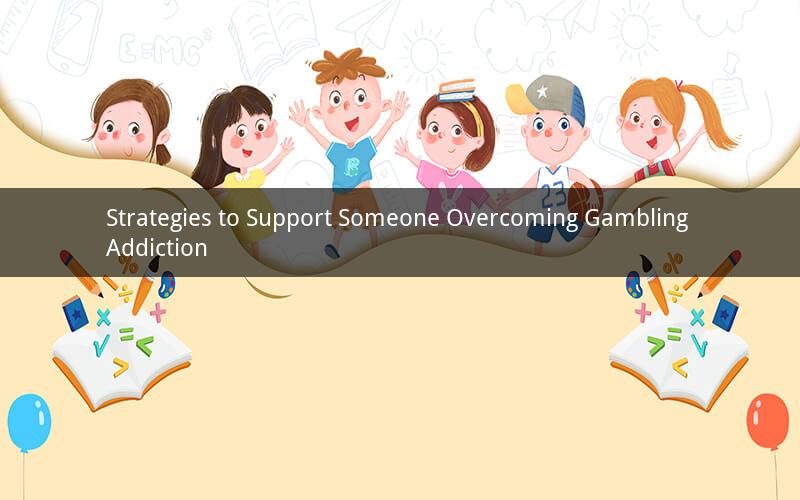
Introduction:
Gambling addiction is a serious problem that affects millions of people worldwide. It can lead to financial, emotional, and social consequences. Helping someone overcome gambling addiction is a challenging but rewarding endeavor. This article provides strategies to support someone in their journey towards recovery.
1. Understand the addiction:
To effectively help someone overcome gambling addiction, it is crucial to understand the nature of the addiction. Gambling addiction is characterized by an uncontrollable urge to gamble, despite negative consequences. It is often accompanied by denial, rationalization, and a desire to keep gambling.
2. Encourage professional help:
Professional help is essential for overcoming gambling addiction. Encourage the person to seek counseling from a therapist specializing in addiction. Therapy can provide tools and strategies to cope with cravings and develop healthier habits.
3. Establish boundaries:
Setting boundaries is vital in supporting someone with a gambling addiction. This may involve limiting access to money, removing credit cards, and avoiding gambling environments. Boundaries help create a safer environment for the person and reduce the temptation to gamble.
4. Educate about the risks:
Educate the person about the risks associated with gambling addiction. This includes the potential for financial ruin, strained relationships, and mental health issues. Understanding the consequences can motivate the person to seek help and change their behavior.
5. Offer emotional support:
Emotional support is crucial for someone struggling with gambling addiction. Be there to listen, offer empathy, and provide reassurance. Encourage the person to express their feelings and concerns without judgment. Remember that overcoming addiction is a challenging process, and the person may experience setbacks.
6. Encourage healthy habits:
Promote healthy habits that can help someone overcome gambling addiction. Encourage regular exercise, a balanced diet, and adequate sleep. Engaging in activities that provide fulfillment and distract from the urge to gamble can be beneficial.
7. Build a support network:
A strong support network can significantly improve the chances of recovery. Encourage the person to connect with others who have overcome gambling addiction. Support groups, such as Gamblers Anonymous, can provide a sense of community and shared experiences.
8. Monitor progress:
Regularly check in with the person to monitor their progress. Celebrate milestones and acknowledge efforts to maintain sobriety. It is essential to remain patient and understanding, as recovery is a gradual process.
9. Be prepared for setbacks:
Setbacks are a common part of the recovery process. If the person relapses, offer empathy and encourage them to learn from the experience. Help them identify triggers and develop strategies to avoid future relapses.
10. Seek self-care:
Supporting someone with a gambling addiction can be emotionally and physically demanding. It is crucial to prioritize self-care and seek support for yourself. Consider seeking counseling or joining a support group for loved ones of addicts.
FAQs:
Q1: How can I help a family member who is struggling with gambling addiction?
A1: Encourage them to seek professional help, establish boundaries, offer emotional support, and educate them about the risks. Building a support network and monitoring progress can also be beneficial.
Q2: What if the person with a gambling addiction refuses to seek help?
A2: It can be challenging to help someone who is unwilling to seek help. However, continue offering support, express your concerns, and be prepared to set boundaries to protect yourself and your family.
Q3: Can therapy alone help someone overcome gambling addiction?
A3: Therapy is a crucial component of overcoming gambling addiction. However, it is often most effective when combined with other strategies, such as establishing boundaries, building a support network, and promoting healthy habits.
Q4: How long does it take to overcome gambling addiction?
A4: The duration of recovery varies for each individual. Some may experience immediate results, while others may require ongoing support and treatment for several years.
Q5: What can I do if the person with a gambling addiction continues to relapse?
A5: Relapses are a common part of the recovery process. Offer empathy, help them identify triggers, and develop strategies to avoid future relapses. It is essential to remain patient and supportive throughout the journey.